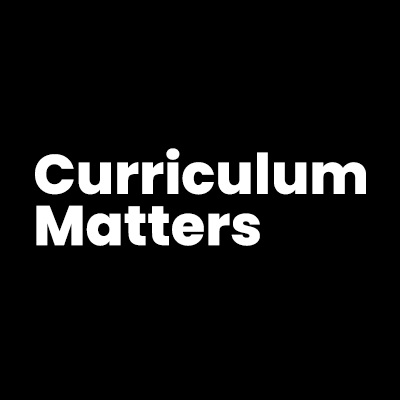
Natalie Wexler
@natwexler
Followers
19K
Following
5K
Media
133
Statuses
6K
Free newsletter: https://t.co/t2u9KERy39. Author, Beyond the Science of Reading & The Knowledge Gap; co-author, The Writing Revolution.
Washington, DC
Joined May 2011
Interested in education, cognitive science, literacy--and fairness? Me too! And I have a free newsletter (no ads), where I post about those topics regularly. To make sure you don't miss an issue, please consider subscribing: https://t.co/yZiLA96OUM
10
25
123
A student was told to “draw conclusions.” So she drew clowns. This story captures what happens when we try to teach comprehension without building knowledge first. A powerful reminder from @natwexler on why background knowledge is not optional. 🎧 Full conversation
0
6
3
POSLUMA provides precise imaging to help reveal what’s real. See POSLUMA’s performance in action. See prescribing information at https://t.co/xrxCXWTMwM.
0
4
31
You know that moment when a student says something brilliant but freezes when it is time to write? 📝 It is not a lack of ideas. It is a lack of writing skills. Speaking and writing are both forms of expression, but they are not the same. At The Writing Revolution, a nonprofit
0
8
21
Teachers: struggling to fit history into the day? 🕰️ Our newest blog shares how building knowledge in ELA made history instruction possible and meaningful. 👉 https://t.co/b8hT8m7W1Z
#HistoryMatters #KnowledgeMatters
0
2
0
🚨NEW EPISODE🚨 If reading comprehension still feels harder than it should, this episode is for you. In the latest Knowledge for Teachers episode, I’m joined by @natwexler, author of The Knowledge Gap & Beyond the Science of Reading. We unpack why comprehension is not a skill
0
6
22
🌊🔋 Storing renewable energy under the sea? The Fraunhofer Institute is developing giant submerged concrete spheres to store clean power in the deep ocean. Innovation meets the seabed. More info 👉
imnovation-hub.com
🔋The Fraunhofer Institute is developing a deep-sea energy storage system based on submerged concrete structures.
186
132
448
What you measure matters. England has made huge progress in aligning its education system w/cognitive science. The US hasn't. Why? A new book by Nick Gibb suggests the reason lies in the different tests used for accountability. Read more in my new post: https://t.co/DyVtfdSIlA
2
10
33
Instead of arguing endlessly about whether Mississippi's reading gains are real (they are), let's focus on Louisiana, which has had significant gains at both 4th AND 8th grade -- and didn't start 3rd grade retention until this year. Read this post to find out what Louisiana did:
Take a dose of Louisiana and chase it with some Tennessee. My latest: https://t.co/sVGJZtJT1x Also, that post above has been viewed 578,000 times. Which is simply insane. And doing nothing for the cause of American children, considering how few will even click that post to
0
7
17
@natwexler reminds us in her latest Substack that real progress comes when teachers have both cognitive science and high-quality instructional materials grounded in that science. Strong science + strong curriculum = stronger learning. #KnowledgeMatters #CurriculumMatters
3
5
22
Next on KBfT: Writing Pt 1 Featuring: @natwexler
@TheWritingRevol Judith Hochman Kathleen Maloney Steve Graham Karen Harris thinkSRSD @ollie_lovell
@KnowledgeMatrs
@TeachWellAus
@SoRclassroom
@IEW
@lifelonglit
@literacypodcast
@circeins
2
2
15
Is your agent writing code and burning tokens, and you don’t know why? Weave fixes that. With just 3 lines of Python, get full trace visibility into every LLM decision. No black boxes. No guesswork. Just clean, complete observability. Try Weave today.
0
1
8
@StamStam193 has another great Substack with a plethora of resources on writing and we love this shoutout to the @KnowledgeMatrs Season 3 Podcast Episode with @natwexler! Head over to Laura’s Substack to read more! https://t.co/o0avOr0rAt
0
9
15
They can't decode long words, and now they're in middle school. Or high school. Can teachers help them learn the basics? https://t.co/Ds7kGCxara
#reading #teaching @ReadingShanahan @karenvaites @natwexler @VodkaPundit @MrDanielBuck @C_Hendrick @Dale_Chu @marcportermagee
joannejacobs.com
Teachers are seeing more middle and high school students who lack basic reading skills.
2
2
9
Writing instruction is grammar instruction. Research shows that isolated grammar drills do not improve writing quality, but there is good news. Effective, explicit writing instruction naturally includes grammar because grammar skills are a key components of writing skills. The
1
22
94
🎯Knowledge-building isn’t trivia. It’s the foundation of reading comprehension. Read more of this brilliant Substack by @oliviajune82 👇🏼 https://t.co/wvfhV0XWPy
#KnowledgeMatters💙
0
6
12
Don’t do it! We give lawn tips on how to grow healthy grass. Here are things not to do or neglect to do this winter in the north and south to keep your winter grass healthy.
1
1
22
The next reading war won’t be about decoding — that verdict’s in. It’ll be about whether all students get the knowledge and vocabulary needed to think deeply and critically. @PamelaSnow2 Read more: https://t.co/gNtqPPFEXT
#KnowledgeMatters #VocabularyMatters
1
11
40
📢The stories, the content and the information are what make social studies so engaging. 📖In this week’s #historymatters podcast, Jon and Gary from @4qmTeaching explain how historical knowledge can also support literacy instruction. 🔗Listen here: https://t.co/b3eYfWDMQE
1
8
8
📢It’s Tuesday and time for a *NEW* episode of the #historymatters podcast! 📖This week, you’ll learn from—and laugh with—Jon Bassett + Gary Shiffman at @4qmTeaching 🧠This episode is full of *KNOWLEDGE* about the 4️⃣ Question Method! 🎧Listen Now: https://t.co/7x4kL8PVnA
0
7
11
Based on 2 weeks in Australia, I have some thoughts. Aussies seem to have more knowledge of cognitive science than US teachers, but they don't yet have as much access to effective curriculum resources. Teachers need both. More in my latest post: https://t.co/py4Of17cO9
3
11
26
🧑🏫 34 MILLION first responders, teachers, & public servants depend on private equity for their retirement. Our new study shows it's consistently outperformed every major asset class since 2012, delivering steady, robust returns.
0
0
0
🦄Quality instructional materials for social studies are unicorns in the elementary arena. 🛠️States like @MASchoolsK12 are working to fix that! Educator, Jennifer Lindsey, from @MedwayMiddle shares more about her 5th grade classroom in Ep. 5! 🎧 https://t.co/b3eYfWEkGc
0
7
9
Came across this sculpture titled “Knowledge Is Power,” by Lu Lu, while walking along the beach in Sydney—in the company of John Sweller!
1
10
41
@natwexler then unpacked the "civil rights issue of our time" & how knowledge is like velcro. #ASISummit25
2
4
19
This morning’s CIS event with @EricaStanfordMP, @natwexler and @DrLSHammond drew a full house — a timely reminder of how big the literacy challenge remains. We keep the momentum going tonight with @EricaStanfordMP, @JasonClareMP, and Sir @NickGibbUK on the next wave of school
0
1
2
🎤 Ready to take the stage at Southeast Asia’s no. 1 games industry conference? Our Call for Speakers is now open! Developers, publishers, creators — apply now!
11
47
230

















